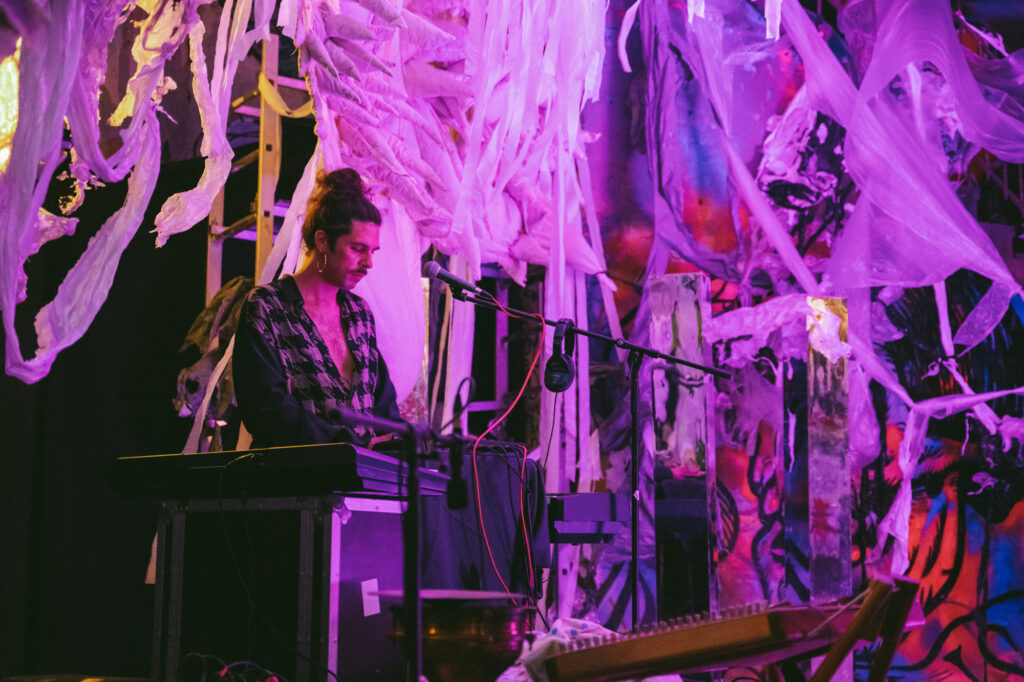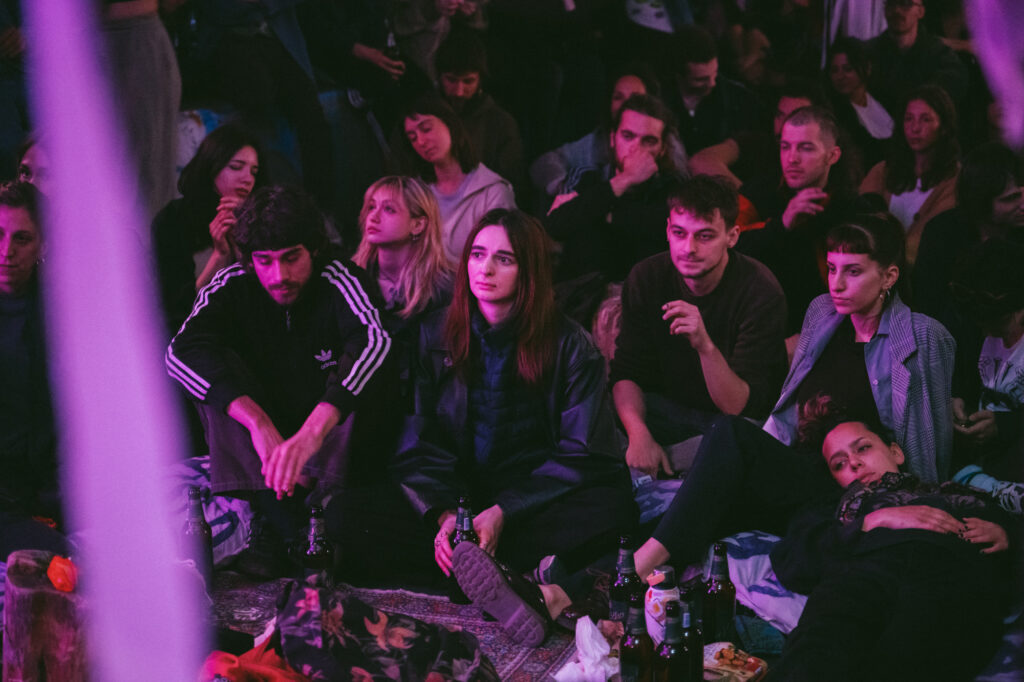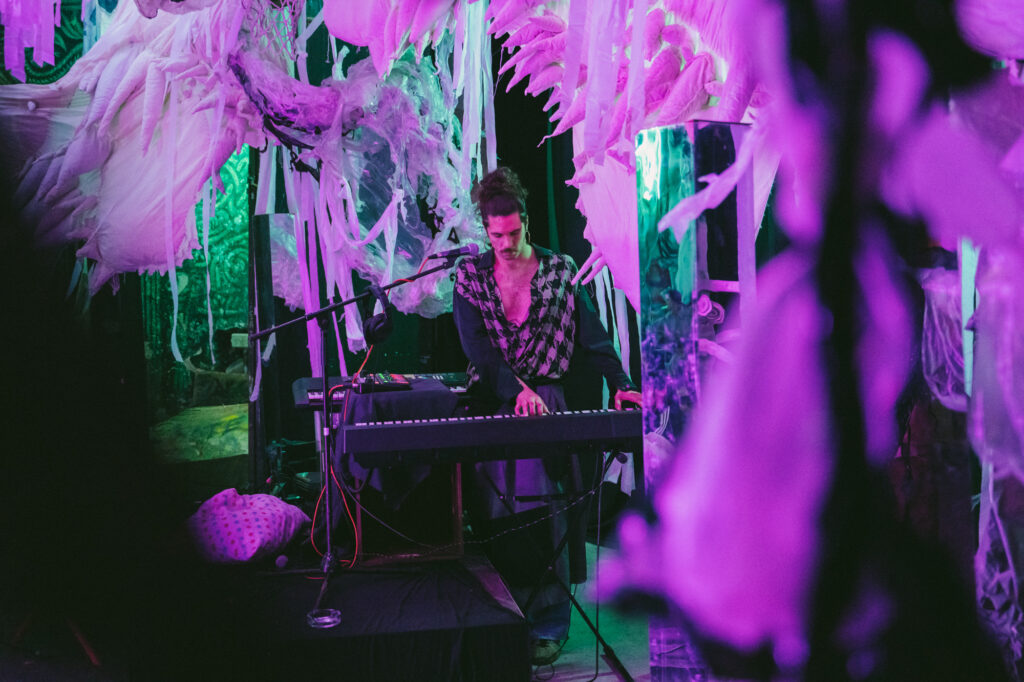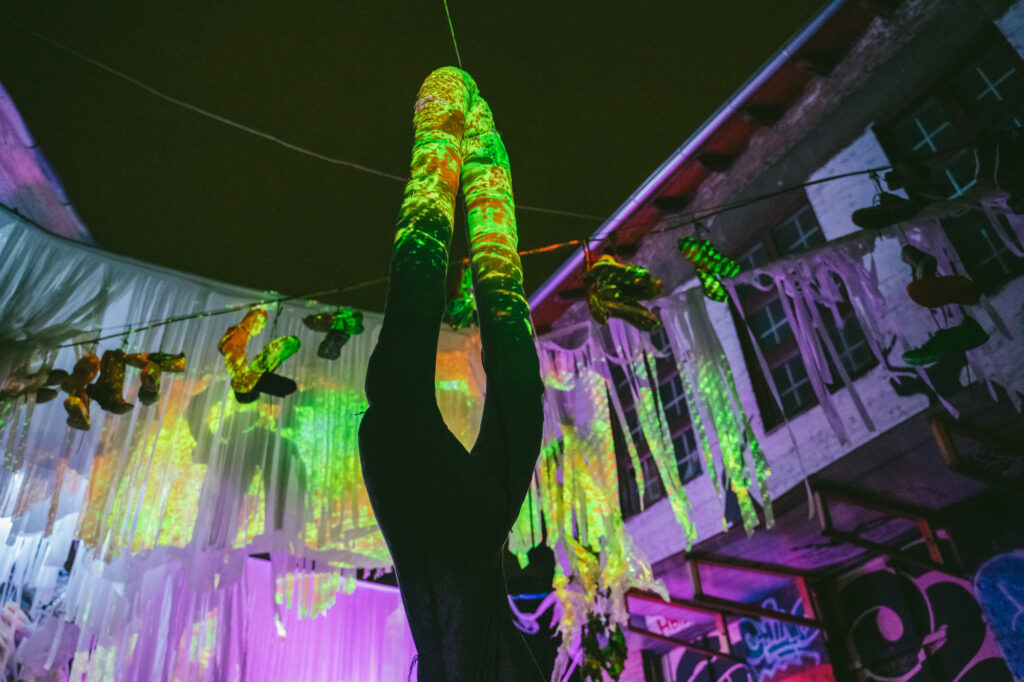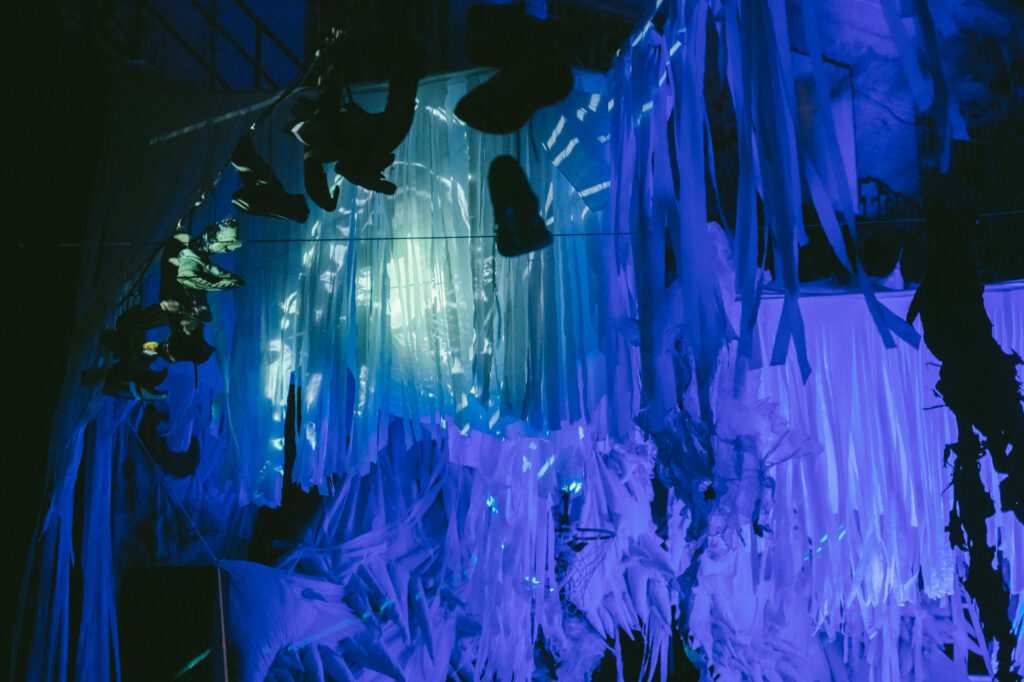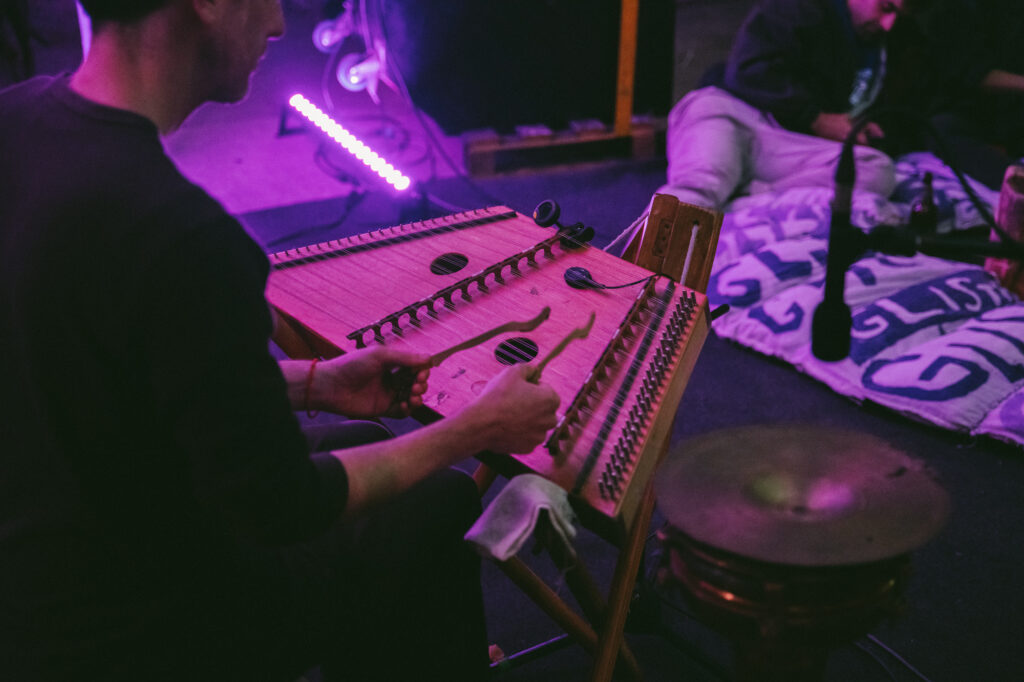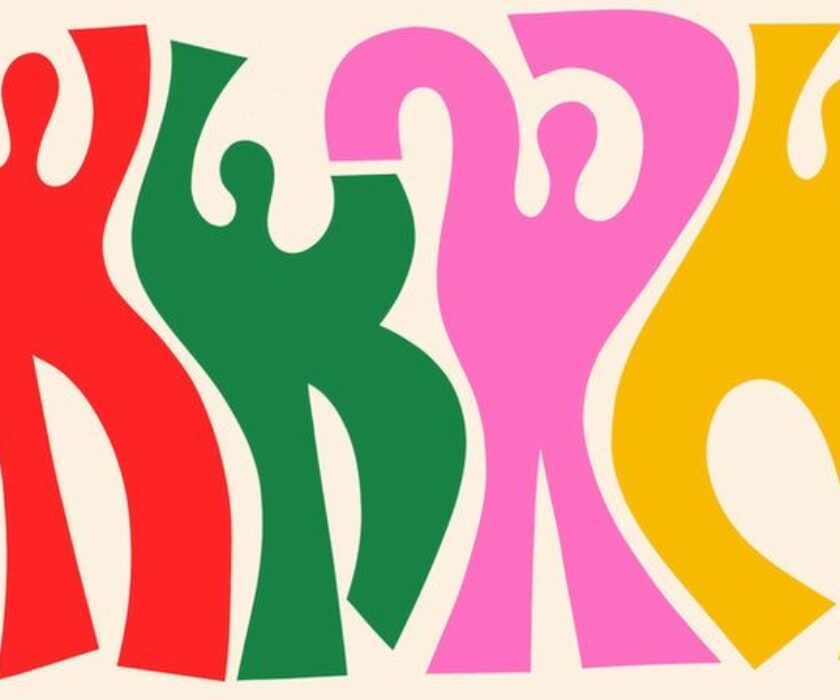Autonomous Cultural Center Medika has been a hub of creatives for years. Several artists founded the union Attack in 1997 to provide space for organizations on the independent cultural scene. After a decade of search for the venue, they illegally moved into the abandoned medicaments factory Medika, which, a year later, became their official workplace according to the permission of the City of Zagreb’s former governance. Since then, Medika has become a symbol for independent culture in Croatia’s capital – a complex of galleries, clubs, studios, and squatting apartments for artists who operate and create in those venues.

This winter, three artists decided to get together and create a new kind of experience, SNOP, that would celebrate experimental and ambient electronic music while setting up artistic installations that transform the venues. SNOP is a creation by visual artist, designer, and current president of the union Monika Milas, a DJ, resident of Volta, and club manager of Attack, Josip Kornet, and experimental electronic music producer Kristian Bagarić, known by its artistic name Varboska. As all of them are active members of Medika, we engaged in the conversation about the scene, independent arts, and the meaning of SNOP.
What is SNOP? What was your motivation for creating it?
Kornet: We wanted to create something different and innovative that does not exist on the scene. It is a new type of auditorium where visitors can actively listen and engage in the audio-visual experience we create. Personally, my wish was to create an auditorium for acoustic, modern classical, and experimental electronic music – basically for the genres that are not primarily intended for clubbing. The genres that make you listen, relax, and engage in music and arts. That idea was stuck in my head for a long time, and in collaboration with Monika, who has often created visuals and installations for our Volta events, we decided to make it happen. When I started working in Attack as club manager we had the venue, and it was the perfect opportunity for such an event. Our first event was in February this year in Attack venue in Medika, followed by the second one two weeks ago on Medika’s terrace. Kiki (Varboska) jumped in as an artist who has a wide knowledge of electronic music, especially experimental and ambient. We are in charge of the music part of the experience, and Monika handles all aspects of visual art, stage design, and installations. The goal was to transform the venue from a clubbing concept where the audience has a focus on the DJ booth into a space where the audience is inside the installation itself and can wander around the space while exploring and listening. At our last event, we collaborated with artists Stella Lebosh and Ivana Stecuk who set up installations with Monika and created a completely different ‘vibe’ than our first event. That is also an important segment of SNOP, as we don’t define a particular setting the audience can expect each time they come to our event. We adjust according to the venue and concept. The idea is to provide something different to the audience, artists, and create a platform for us to develop and learn.
Monika: Through those events, we are also storytellers because each one of us provides their skillset and values about arts and electronic music. That is the main reason why we collaborated as I feel we have a lot to give and to show. The audience can feel the emotion of the music and the ambient itself. It all connected well, and our story as three artists really came out. Each time we tell a different story.
Varboska: For me, it’s a really important aspect. We are learning each time and adjusting our possibilities, expectations, and wishes for every event. It’s about active listening and perception of the ambient and artistic installation.
Is active listening still a part of clubbing and how does the art adjust for all of those different types of events and venues?
Varboska: In terms of experimental and ambient music, active listening has always been a crucial point of it and it isn’t necessarily always a part of clubbing. When it comes to experimental electronic music producers in Croatia, I can count them on one hand. I started producing 5 or 6 years ago, and then I didn’t really know what was going on in Croatia’s scene as I didn’t go out much. Soon after, I met Volta crew and they gave me an idea of how to implement experimental and ambient electronic music in clubbing. It’s a more calm way, it can be relaxed or as a catharsis.
Kornet: Active listening in clubbing is a rarity, but those are also not auditoriums. We see that people are actively listening on SNOP, but some people also commented that they felt uncomfortable, they could not relax, and fully involve in the experience. They are not used to sit around for an hour or two and actively listen to music. I think that’s great because it’s an opportunity to explore and focus on the music. People would tell us that they are preparing for the next one and that they will try to relax and focus.
Monika: We start the process when we arrive on site. It is stressful and it takes time to adjust all of the parts of the experience. While the event is ongoing, then we do most of the work and adjust according to the vibe and audience. Afterward, when people come to us, we connect all the dots as they point out details that are special to them. People said they almost cried, had goosebumps, and felt all sorts of emotions. For example, on our last event on Medika’s terrace, a girl sent me a message offering to set up the LED lights for free. We accepted it, and she managed to set the perfect tone of yellow which completely shifted the atmosphere and created this warm beautiful setup. I remember I started having goosebumps at that moment. It was beautiful and romantic – the look and feel I was aiming for with this project. Even though I was involved in different types of projects and venues, including galleries, theatre, clubbing, festivals, and outdoor venues, I always had the same approach. I have never limited myself and wasn’t afraid of different venues. It’s the same in every type of art, if you’re afraid you get blocked. I am very lucky that I had the opportunity to experience all of those types of events and venues. At the moment, SNOP is something that allows me to learn more about myself and I can expand my perspectives on art and ambient. I am learning about technical aspects and expanding the boundaries. People always expect you to do new things, and sometimes it gets hard for an artist, but this type of experience allows us to constantly experiment and adjust to new situations and venues. At this point in my career, I would like to do more commercial stuff, but also return to nature and do installations in woods, parks, and outdoor spaces. Maybe churches and archeological sites as well.
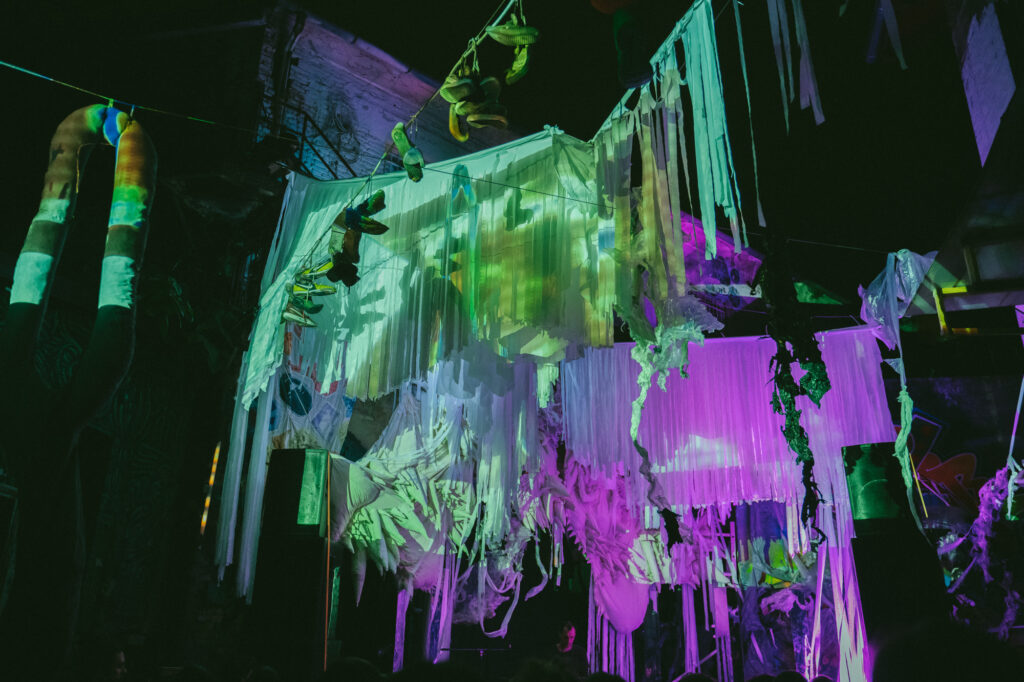
During the last couple of years, some of Zagreb’s cultural hubs closed for good. Ten days ago, police violently entered the Attack club and reviewed all of the documentation. Why did it happen and how is the situation in Medika now? What is the status of Croatian autonomous culture?
Kornet: Attack and Medika are not in danger of closing, the inspectors who came did not find anything ‘off the books’ and we hope it will remain like that – it depends on the local authorities. Even though there are a lot of negative events for autonomous culture, there is a boom of new artists in Medika that hasn’t happened since 2016. People who stand behind Medika and Attack Union have been there for a very long time and are very familiar with our rights. Medika has always defended and found a correct legal way to resolve all potential issues with the authorities. The most important thing about Medika is the community, but it’s not for everyone. Attack and Medika have always been there for independent artists, DJs, producers, promotors, and collectives who wanted to do something different. When we came there as Volta, we were accepted even though it was primarily a punk place. They liked our approach to electronic music. Each club has its pros and cons, and Medika has some technical disadvantages, but as a venue, it can give loads of advantages that you can not find in any other venue. I think everyone who finds their place in Medika just stays there. Medika will always have a lot to offer. After closing some clubs and venues recently, many collectives and promoters tried to organize an event in Attack. Many of them think that venues in Medika are just typical clubbing venues, but that is not the case. There is a natural selection for people who want more artistic expression. There is no such place in Zagreb, I can maybe compare it to club Kocka in Split. When you come to an event in Medika, it’s not like coming to any other club where people change, there you will find people who are a part of it and work for it. It’s a DIY concept, so you can learn a lot. I think it’s important to know and learn to build something from scratch. It’s unlikely that you will become egoistic when you put that much effort into building everything around your event. Most of the people involved in Medika aren’t there just for the money, and you can feel it. Here we can do workshops, the members are teaching others about their skills.
Varboska: I don’t know any other venue in Zagreb that would accept the things that I’m doing and I’m passionate about. I don’t even know a place where I would find a job with my kind of art. Medika is literally the only place where I can express myself. When I’m there, I play with sound, experiment, and tend to find new ways how to surprise myself and others. If Medika closes, it would be a disaster for Zagreb’s culture.
Monika: People who come to Medika just know that every time they come to an event they will find something of quality. When it comes to art, it’s the same. There are no similar stages in Croatia as the ones I designed in Medika. If there wasn’t trust from those collectives, I wouldn’t be able to express my art in clubbing. It’s a place where we can fully be ourselves. When you’re surrounded by like-minded people, you have a safety net and they support what they do. They push you to do better and help if you need it. Also, we put the community over our ego, and we know how important it is when we feel insecure about our work. It’s good to surround yourself with people and ask for opinions. I would never change my path, Medika trains you for life and decision-making.
How to become a member of Medika?
Kornet: Monika and I work there, but many volunteer there. It is a cultural center, meaning that is open to all. Someone who wants to come there and work for themselves and for the benefit of the whole community is always welcome. Medika lives with fresh new people who bring positive energy and are willing to help.
Varboska: Just hang around there. If you’d like to get involved in the activities that take place in Medika, it is important to communicate with other artists, organizers and to support events in any way possible – by paying entry fees, sharing on social networks, volunteering, etc. I think that’s very important for an artist, especially someone who deals with sound and music, to exhibit their works, put their tracks and mixes online on Soundcloud and YouTube, and build a community with other artists.
Monika: It’s hard to just become a part of Medika, you get there after some time (laughs). When it comes to new artists who would take over an atelier if someone leaves, it just comes naturally. We discuss it internally, and it’s also by recommendation. We often talk about new artists – have we noticed someone interesting who would be a great fit in Medika and have the same mentality?
Monika, Varboska, and Kornet have invited everyone who is just starting on the independent creative scene to come to events, hang out, and network. Their advice was to ask questions, connect with like-minded people, and share their work. Meanwhile, they will prepare for their next edition of SNOP on June 6th, as a part of The Youth Salon at the Croatian Association of Fine Artists. It is a great opportunity to discover young perspective artists from Croatia and check out SNOP’s new audio-visual experience.
